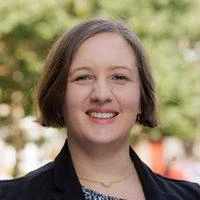
About
Dr Laura Morris joined the department from Harvard’s PhD programme in Public Policy and teaches DV431 – Development Management. Laura is a development economist with a focus on global health and other public services in low and middle-income countries. She primarily studies resource allocation methods: the processes by which we determine whether uses of public funds are cost-effective or socially justified, with secondary interests in health equity analysis and machine learning in international development.
Her current research projects include a systematic review of experimental and quasi-experimental impact evaluations in developing countries to apply existing causal estimates to modern public economics methods for conducting welfare evaluations. This also offers adaptations to the canonical MVPF approach to account for the particular public finance position of developing countries, and provides evidence on the fitness-for-purpose of current priorities in programme evaluations. A parallel stream of research focuses on the relationship between health system strengthening, reductions in mortality and morbidity, and spending on disease-specific programmes, with a focus on evidence from India.
Before graduate study Laura was an ODI Fellow in Nigeria working on primary health care policies, and a consultant with the International Decision Support Initiative (now at CGDev) developing and assisting with evidence-informed budget prioritisation methods. She also holds a MSc in Health Policy, Planning and Financing from LSE and the London School of Hygiene and Tropical Medicine, and a BA in Philosophy, Politics and Economics from the University of Oxford.
Expertise
Development economics and policy, focusing on health and public economics. Particularly interested in resource allocation and evaluations of social programs with experimental and quasi-experimental econometric methods